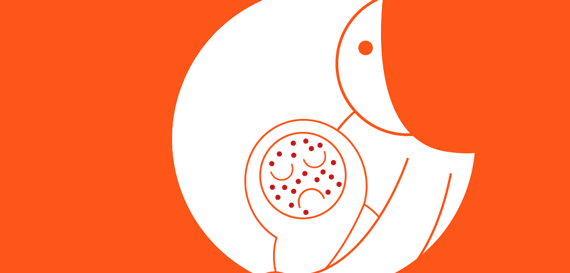
Yet Europe has a problem. Some vaccine-preventable diseases are making an unwelcome return. Measles is a case in point: despite aiming to eliminate the disease, Europe has recorded thousands of cases in 2018. At least 49 people have died of measles since 2017.
The reasons, say experts, are complex but can be summarised as the 3 Cs: confidence, convenience and complacency. Most people vaccinate but some are not convinced about the benefits or safety of vaccination; some have difficulty accessing immunisation services; and others think it’s unnecessary as the diseases appear to be ‘gone’.
Joint Action on Vaccination
The EU says enough is enough. With the support of the European Commission, more than 20 countries are working together to improve vaccine uptake. Led by INSERM in France, the Joint Action on Vaccination is a three-year effort to address vaccine hesitancy, vaccine supply, research and development, and cross-border cooperation against vaccine-preventable diseases.
France itself has suffered measles outbreaks but, steeped in vaccine history (merci Monsieur Pasteur) and keen to preserve its health system by emphasising prevention, it is a natural leader for a European vaccination initiative.

The drive for improved vaccination rates reflects a broader push towards preventative health and a collective commitment to improve public health, says Professor Chene. ‘Due to insufficient uptake of vaccines, we are seeing a resurgence of vaccine-preventable diseases, not just of measles but also diphtheria and flu,’ she told Vaccines Today. ‘These outbreaks have a significant impact on the health of our populations and, when we have a solution to hand [vaccines], this is unacceptable.’
The rationale for European action is clear: viruses do not respect borders; an outbreak in France or Romania can easily become an outbreak in Italy or Slovakia. At the same time, the involvement of national health authorities and institutes is vital because healthcare is the responsibility of EU member states. It is national health services that deliver vaccine programmes.
‘Some countries have maintained high levels of coverage and can share their experiences,’ said Prof Chene. ‘It is everyone’s interest to cooperate given the risk of cross-border epidemics, and their impact on public health, security and economies.’
The initiative will also explore vaccine shortages, look at the emergence of new epidemics, and examine vaccine uptake in certain population groups such as health professionals. The Joint Action is an opportunity to discuss common ways of collecting data and estimating vaccine coverage rates, potentially paving the way for pan-European electronic vaccine records.
Five key topics
The three-year action, which runs until the summer of 2021, has a budget of €5.8 million, including €3.5 million from the EU Health Programme. It aims to produce new tools to tackle vaccine uptake and to build sustainable partnerships that can live on beyond the life of the Joint Action.
Among the new tools it aims to develop are:
- Common approaches to scientific evidence on which national immunisation programmes base decisions related to vaccine policy
- Shared standards for databases and data sources used to estimate vaccination coverage
- Better dialogue with industry on vaccine supplies
- A framework for setting research priorities on vaccine research, potentially allowing countries to align their research programmes
- Pilot communication programmes targeting younger people directly and improving the use of social media to identify and address vaccine hesitancy
The key to its long-term impact is turning the outcomes into action. Many EU projects have produced recommendations, guidelines and toolkits that do not influence national policies. The Joint Actions strives to different: ‘I believe the results can be translated into national programmes because these are decided by EU Member States who will play an active role in our work.’
In response, the EU and its member countries are taking a range of actions. These include ensuring access to vaccines, developing new vaccines, and tackling misinformation online.
The European Commission has produced a Communication on vaccination and the European Council (comprising ministers from national governments) is expected to approve a set of actions at its December meeting.




